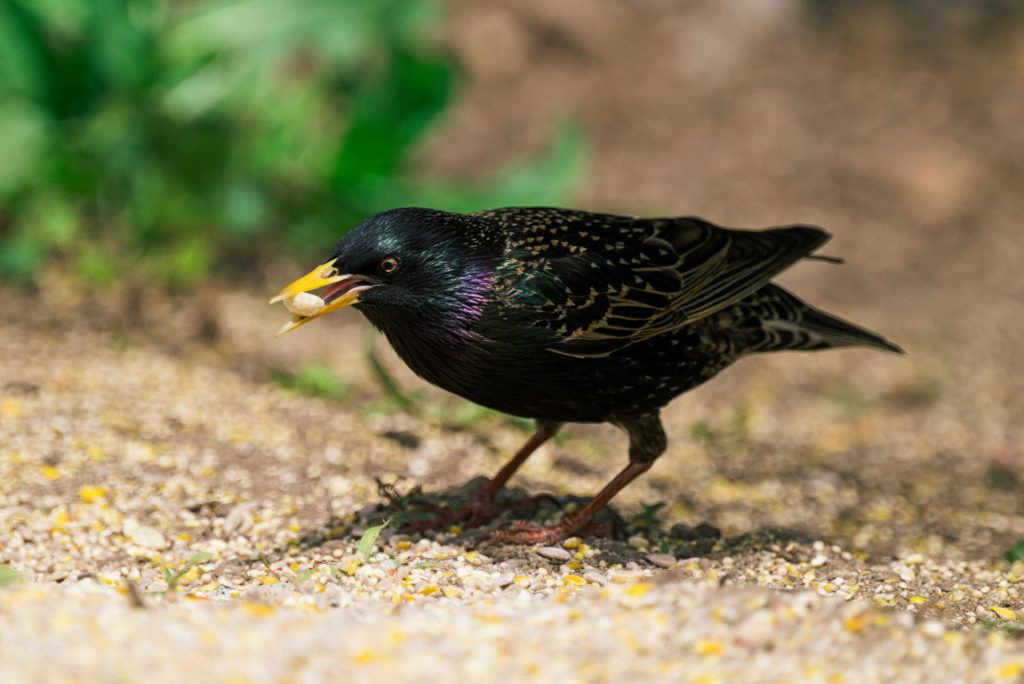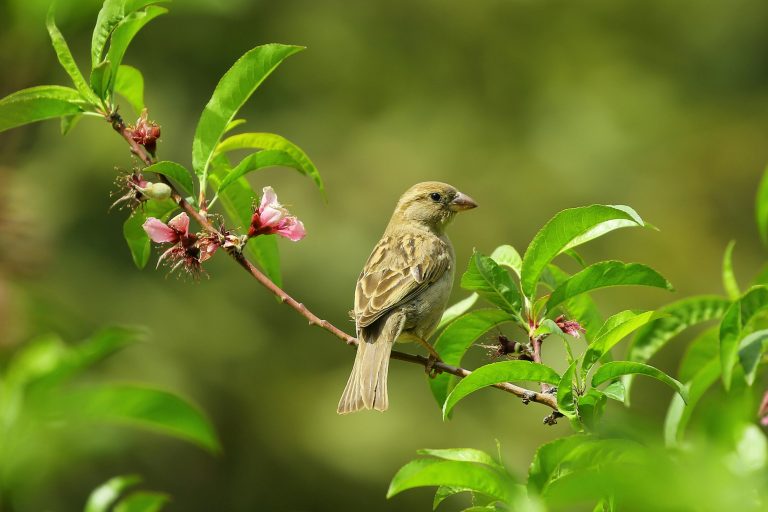The sound of birds chirping in the garden has always been synonymous with warm, sunny days for me. And now that spring is (finally!) here, it’s all the more reason to put those food scraps to good use by feeding them to birds. Offering kitchen scraps to garden birds is not only a great way to minimise waste but also to save on bird food costs. However, it’s essential to know which scraps are safe.
Safe kitchen scraps for garden birds
Fruit: Many birds, like finches and starlings, love fruit. Bruised apples, pears, and bananas are perfect; just chop them into small pieces or skewer them on branches. Dried fruit, like raisins or currants, can also be soaked in water and offered.
Vegetables: Birds such as sparrows and finches enjoy peas, sweetcorn, and even cooked potatoes. These vegetables provide essential nutrients and can be a tasty supplement to their diet.
Nuts: While we often think of peanuts for birds, many species will also eat other nuts like pecans, walnuts, and almonds. Ensure these are unsalted and crushed into small pieces to avoid choking hazards.

Cheese: Mild cheddar is a fantastic source of fat. Grate it to make it easy for birds to eat. Avoid stronger, saltier cheeses, as salt can be harmful to birds.
Cooked pasta and rice: These are great for grain-eating birds like sparrows. Just ensure they’re plain and unsalted, and chop them into bite-sized pieces.
Cereal: Plain cereals like raw oats are a good option. Avoid those with added sugar or chocolate, and offer them dry.
Meat: Fat trimmings from unsalted bacon or leftover cooked meat can be a valuable protein source. Just be cautious, as these can attract other wildlife (i.e. the neighbour’s curious cat), so it’s best to place them in a bird feeder.
Cooked eggs and eggshells: Eggs are packed with nutrients, and their shells provide much-needed calcium, especially during nesting season. Crush the shells finely and offer them alongside other scraps.
Pet food: Wet cat or dog food can be a good protein source, especially for birds that eat insects. If using dry food, crush it and moisten it with water to make it easier for birds to eat.
What to avoid
While many kitchen scraps are safe, some can be harmful:
- Salt: Birds cannot process salt, and it can be toxic to them. Avoid offering any salty foods.
- Milk: Birds are lactose intolerant, so never offer milk or dairy-heavy foods.
- Chocolate: Toxic to birds, never leave chocolate or foods containing cocoa outside.
- Avocado: Contains persin, which can be harmful to birds.
- Mouldy or rancid food: Just like humans, birds can get sick from spoiled food. Only offer fresh, safe scraps.
Tips for feeding scraps safely
Always provide fresh water alongside food, and clean your feeding area regularly to prevent the spread of disease. Feed scraps sparingly to avoid attracting unwanted pests or allowing food to go mouldy.
ALSO SEE: Edible invasive plants to add to your garden and dishes
Feature image: Pexels

